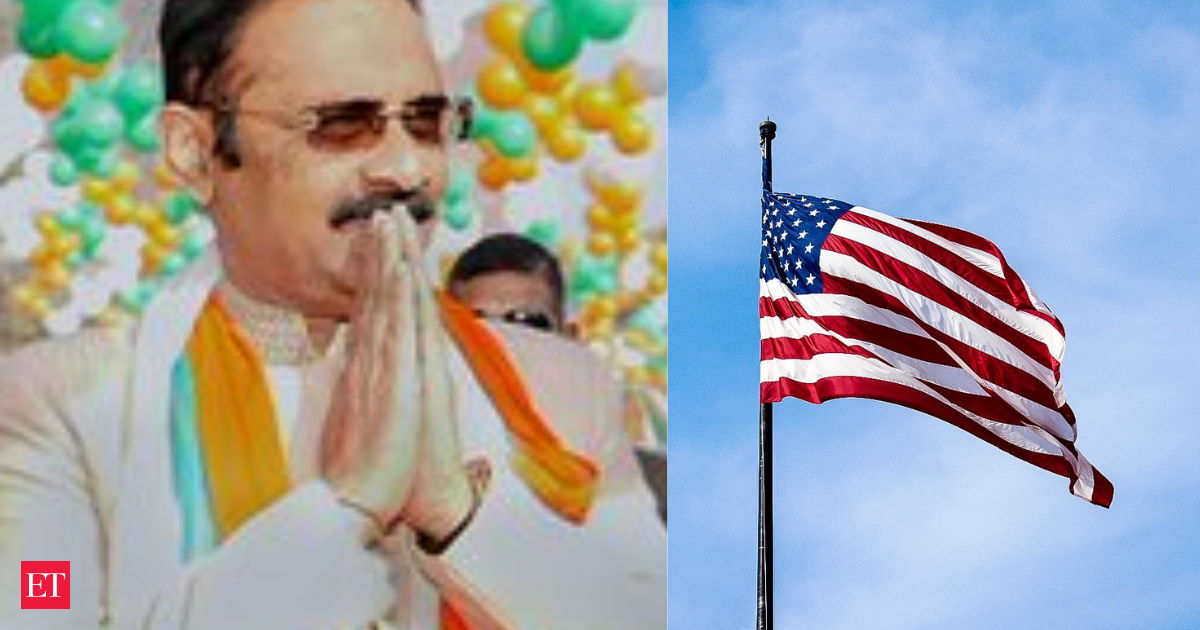New Delhi: Dr. Ashok Kumar Mittal, founder-chancellor of Lovely Professional University (LPU), has initiated a significant movement termed “Swadeshi 2.0,” declaring an all-out boycott of American soft drinks on campus. This action follows the U.S. government’s decision to double tariffs on Indian exports to as high as 50%, provoking Mittal’s critique of U.S. policies as hypocritical and bullying. The movement seeks to rally support for Indian nationalism and economic independence.
Launch of the “Swadeshi 2.0” Movement
Dr. Ashok Kumar Mittal’s recent announcement at Delhi’s Constitution Club has stirred conversations about nationalism and economic independence in India. By implementing a boycott on all American soft drinks at Lovely Professional University, which boasts a student body of around 40,000, he aims to set a precedent for a broader national movement. His objective is crystal clear: to resonate the historic sentiments of the 1905 Swadeshi movement, encouraging a modern-day effort to prioritize domestic products over foreign imports.
“I think America has underestimated India’s strength and resolve. The time has come to show them our true strength and resolve,” Mittal stated. This bold stance serves both as a protest and a rallying call to fellow Indians to unite for their national interests, especially after a perceived act of economic aggression from the U.S.
Context of Economic Tensions
Mittal’s boycott coincides with a pivotal moment in India-U.S. relations characterized by heightened trade tensions. The U.S. decision, under President Donald Trump, to raise tariffs on Indian goods to as high as 50% marks one of the most significant challenges to bilateral trade in recent times. While Mittal’s actions have sparked discussions within India, the economic implications are considerable.
The Indian government remains determined to protect its economic sovereignty. Prime Minister Narendra Modi and his team have reiterated the need for strategic autonomy in trade, especially regarding energy imports from Russia. This tough stance signifies that India is willing to stand its ground, even in the face of economic pressures from one of its largest trade partners.
Policy Reforms Amidst Tariff Hikes
In response to the abrupt tariff increase, India is implementing a series of economic reforms aimed at maintaining internal stability and promoting growth. An essential part of this strategy involves restructuring policies such as the Goods and Services Tax (GST). The government aims to instill economic confidence, with economists suggesting that although there may be a slight decline in GDP—estimates range between 0.20% to 0.90%—the long-term outlook for India remains promising.
At a recent meeting of the Economic Advisory Council, Prime Minister Modi sought innovative policy suggestions to elevate living standards and facilitate a more business-friendly environment. Notably, analysts remain optimistic about the Indian economy, projecting a steady growth rate of around 6.5% by March 2026. With inflation under control and potential interest rate cuts on the horizon, India appears poised to navigate these turbulent waters effectively.
Maintaining Resilience in Trade
Despite the challenging trade environment with the U.S., it’s important to recognize the resilience of the Indian economy. Exports to the U.S. accounted for $87.4 billion in 2024, yet they represent only about 2% of India’s GDP. The country relies predominantly on domestic consumption, which constitutes roughly 60% of its total economic activity.
This internal strength, highlighted by improving credit ratings and a robust banking sector, empowers New Delhi to pursue ambitious reforms, even when grappling with mounting trade tensions. As economists like Sanjeev Sanyal point out, the macroeconomic indicators are favorable, laying a solid groundwork for future growth.
Mittal’s “Swadeshi 2.0” movement provides a culturally resonant framework for these discussions, returning to historical roots while pushing forward a vision for an economically sovereign India. His bold step challenges individuals and institutions alike to contemplate their consumption choices, urging a shift toward local products and economic self-reliance.
Conclusion: A New Era of Economic Nationalism
In this era of rapid globalization and complex trade relationships, Dr. Ashok Kumar Mittal’s efforts illustrate the tension between global interdependence and national interests. As India grapples with external pressures, movements like “Swadeshi 2.0” reinforce the importance of prioritizing local industries and redefining what it means to be economically independent.
While the implications of tariffs loom large, Mittal and his supporters remain adamant that Indian resolve will prevail. Should this symbolic resistance resonate nationwide, it could forge a new path for India’s economic dialogue—one that values autonomy over acquiescence, and local products over foreign imports. The unfolding of this narrative will not only shape India’s economic landscape but could also influence how the nation asserts its identity in an increasingly interconnected world.
Bankerpedia’s Insight💡
The “Swadeshi 2.0” movement, initiated by Dr. Ashok Kumar Mittal, highlights India’s assertiveness in the face of rising trade tensions with the U.S. By boycotting American soft drinks, it symbolizes a broader resistance against what many perceive as economic bullying. This could inspire a shift towards greater domestic consumption, potentially invigorating the banking and finance sector by redirecting investments into local enterprises. Readers are encouraged to support homegrown businesses, fostering self-reliance while navigating these economic changes. The evolving landscape underscores the importance of adaptive strategies in personal finance amid global uncertainties.
What Does This Mean for Me?🤔
- Salaried Person → Increased awareness of nationalism in consumer choices.
- Business Owner → Increased tariffs may raise costs and impact profits.
- Student → Increased awareness of nationalism and economic impacts.
- Self-employed → Increased operational costs and potential market shifts.
- Homemaker → Increased prices and limited options for soft drinks.
- Retiree / Senior Citizen → Rising tariffs may increase living costs for seniors.
- Job Seeker → Increased nationalism may affect job opportunities and sectors.
- Farmer / Rural Citizen → Increased costs and trade instability for agricultural exports.
Research References📚
- economictimes.indiatimes.com
- RBI
- SEBI
- Ministry of Finance
- NABARD
- Department of Financial Services (DFS)
📲 Stay ahead in banking & finance!
Join the Bankerpedia WhatsApp Channel for instant updates, and
subscribe to our YouTube Channel for in-depth analysis and expert explainers.










